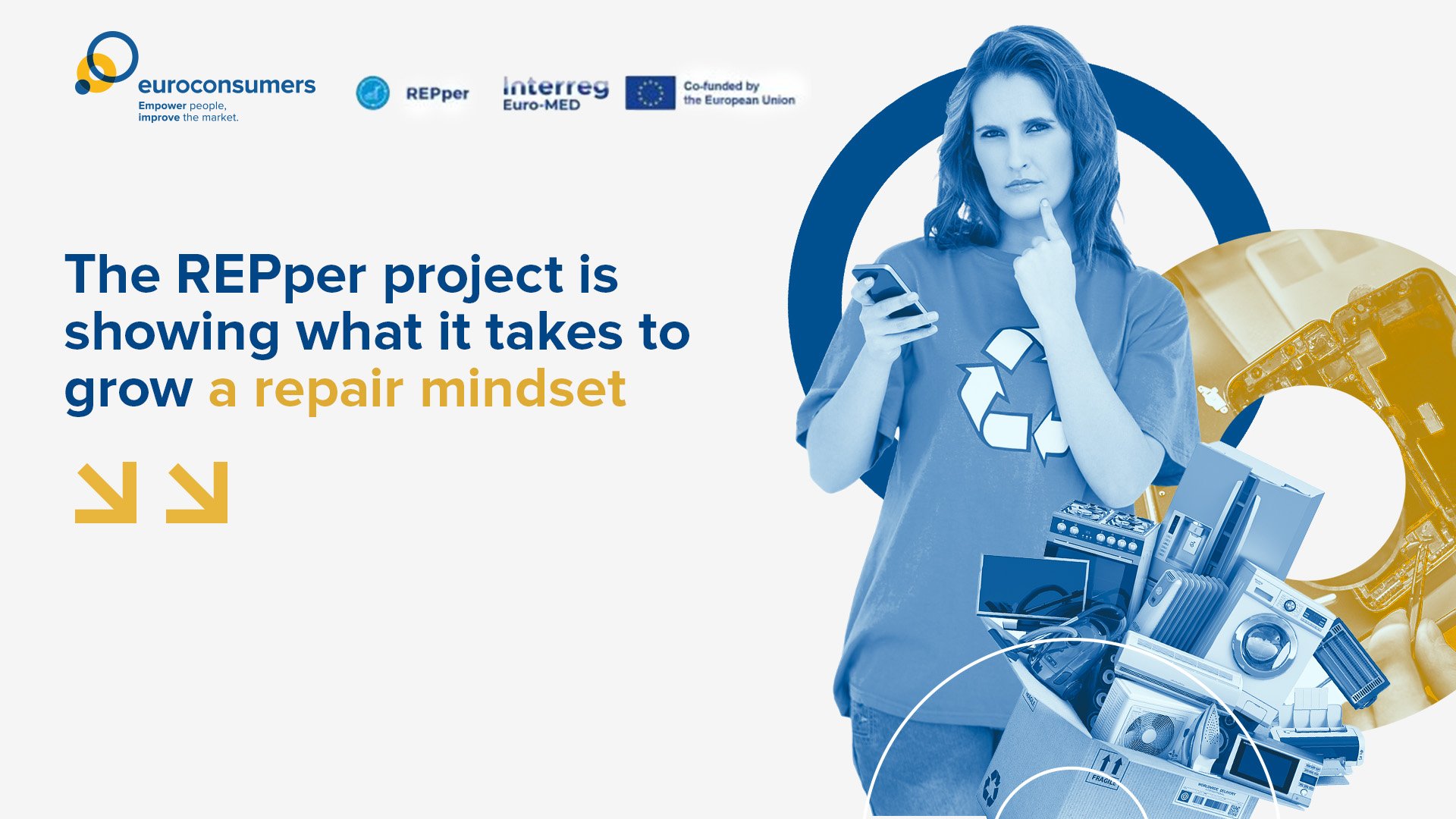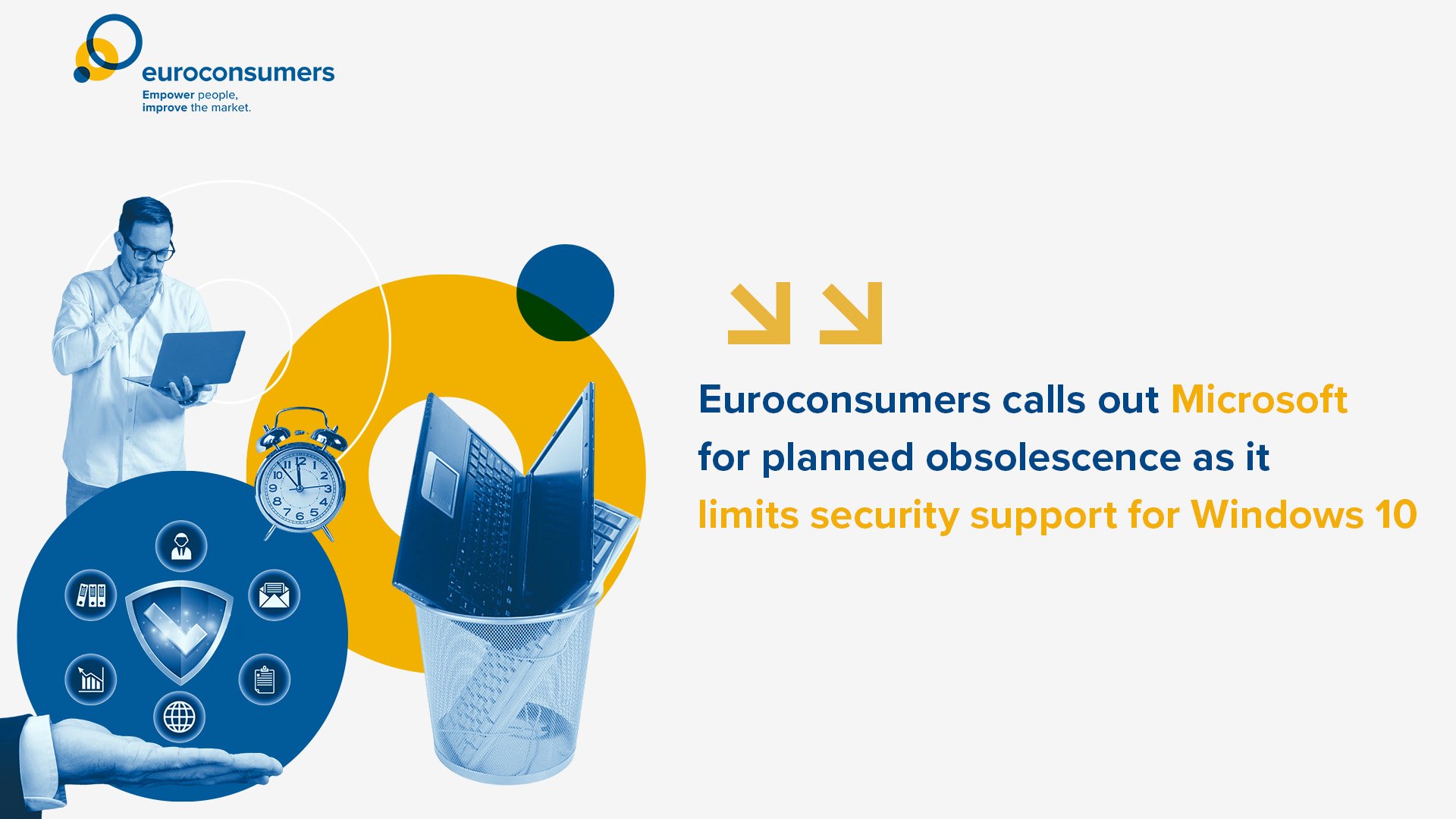
The REPper project is showing what it takes to grow a repair mindset
As part of the REPper project, Altroconsumo, OCU and DECOProteste are taking action to make repair the preferred option for people if their products break down too soon.
Read More


At the start of May, Microsoft announced that any computer running the Windows 10 operating system would no longer receive security updates after October 2025. The system will still work, but without security updates, anyone using this operating system on their laptop or PC will be exposed to a greater risk of hacking.
To continue receiving support and updates, users would need to upgrade to Windows 11. However, this is not so simple as only newer computer models from around 2018 can run Windows 11.
People with older laptops, from 2017 or before who want up to date security provision from Microsoft will have to upgrade to a newer device.
A couple of weeks later, it appeared as though consumers may have a reprieve as Microsoft announced it would continue with security updates until 2028.
However, our tech product experts had doubts that this would really deliver for consumers:
Microcofts have announced they would offer up to 3 years of extra security updates for Windows 10 against payment. But the costs and availability of this extension and whether this is available for European as well as US consumers is still unclear. They do, however, show the pricing for companies, where the cost increases significantly every year.
Tom Thysen, Project Coordinator, Testachats/Testaankoop
It’s likely that the three year extension would change very little, particularly as consumers would face added costs for the ongoing security which would quickly push someone towards replacing their device.
Limiting security means limiting product life and Euroconsumers considers Microsoft’s action as a form of planned obsolescence – which is when companies design products to be replaced before the end of their lifetime.
Planned, premature obsolescence is incredibly frustrating for consumers, costs them money and increases e-waste as products are thrown away too soon. It also increases the need for new manufacturing which has its own energy, resource and material costs.
Euroconsumers and its members have long campaigned for an end to this damaging and unnecessary business practice, bringing complaints and cases against HP, Nintendo and Apple, campaigning for new regulations to stop premature obsolescence and running innovative projects to find new ways to break the obsolescence cycle.
Limiting security updates also has a knock on effect on devices in their next life too. Refurbished goods are becoming a popular option for consumers who want to reduce their environmental footprint and save money.
Euroconsumers latest research found that 24% of respondents had purchased a refurbished tech device.
Our accompanying position paper on refurbished goods called ‘How good is ‘as good as new’? made the case for building a vibrant and fair refurbished goods market.
It highlighted the problem with prematurely reducing software security updates as they restrict the ability to refurbish devices and keep them in circulation for a long lifetime. Recent EU legislation has sought to tackle this, but in the case of Windows 10, it might be too little too late.
To find out how consumers will respond to the changes, Euroconsumers ran a survey of all of its national organisations’ consumer members who owned devices running Windows operating systems.
Over 12,000 people responded and although they are not representative of the national populations, they do give an important indication of the scale of the impact on owners of older devices.
The study found that across Belgium, Italy, Spain and Portugal:
Planned obsolescence in the Windows 10 case is pushing consumers towards two choices – buy a new device before you’re ready or stick with your current one and face increased security risks. The survey suggests that a high proportion of pre-2017 computer users will be at risk of a hack come October this year.
Euroconsumers thinks this is wrong:
By stopping security updates for laptops some of which were bought just 8 years ago, Microsoft is forcing many consumers who are satisfied with their devices to buy a new one or take on the increased risk of hacking and data loss.
And our Belgian member Testachats has a simple solution:
Microsoft could easily continue to offer support for a few more years, especially since Windows 10 and Windows 11 are very similar. Doing this will help reduce a mountain of unnecessary e-waste and save consumers money
Empowered consumers can improve markets, but pushing them into unfavourable choices like this takes away their ability to shape markets for the better.
The quick reversal from Microsoft shows that companies can extend lifetimes if they want to, but we need them to make the right choices for the market.
It turns out Microsoft has all the tools in hand to give product a longer lifespan, but instead of giving consumers devices that last longer they prefer to use it to increase profits
Els Bruggeman, spokesperson for Euroconsumers
We can empower and encourage consumers to choose longer lasting products that last but the market has to step up and make them readily available.